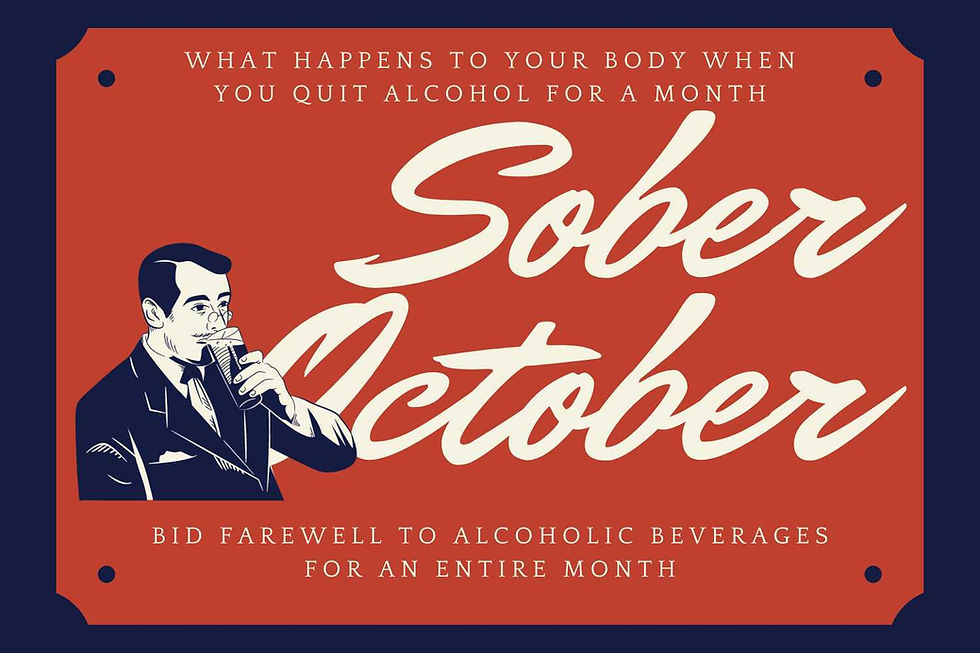Sober October: origins, benefits, and how to participate
- raoulvanneer

- Sep 25, 2025
- 3 min read
Everyone's familiar with Dry January by now, but did you know that October has its own alcohol-free month? Sober October began as an Australian initiative and grew into a campaign in the United Kingdom to raise money for cancer research. It's now become a global moment to be mindful of alcohol consumption. No lists or finger-wagging, just a refreshing reset at a time when the days are getting shorter and your body could use some extra energy.

From Ocsober to a global movement
The first time Sober October emerged, it was still called Ocsober . It was organized in Australia to show young people that you can have fun without alcohol. Shortly after, Macmillan Cancer Support in the United Kingdom adopted the idea, under the name Go Sober for October . Participants give up drinking for a month and raise money for people with cancer. This social and community aspect gives the movement extra momentum. These days, Sober October also focuses on personal goals: healthier living, better sleep, or simply reflecting on your relationship with alcohol.
Why a month without alcohol is worth it
Those who participate often quickly notice a difference. Without alcohol, your sleep pattern improves and you wake up feeling more refreshed. Your skin looks healthier, and by skipping the empty calories of alcohol, you'll lose weight. Many people also experience greater mental peace. You don't have to fight off hangovers, and you have more energy to exercise, read, or simply enjoy your day. These aren't promises that work out exactly the same for everyone, but almost everyone who participates sees benefits that motivate them to stick with it for longer.
The social aspect
What makes Sober October so much more fun is when you do it together. Friends or colleagues challenging each other, communities sharing experiences, or campaigns connecting participants with a good cause. This not only makes it easier to persevere but also creates a sense of community. While October is normally filled with drinks and dinners, a different kind of conversation suddenly arises: what does it actually feel like to not drink for a while?
Alcohol-free is no longer boring
One of the reasons Sober October is becoming increasingly popular is the enormous selection of non-alcoholic alternatives. Where you used to have to settle for a standard non-alcoholic pilsner, you can now choose from IPAs, stouts, wheat beers, and even non-alcoholic sours. At ONP5, that's what it's all about: showing that non-alcoholic beer can be flavorful and surprising. This makes participating in Sober October less of a chore and more of an opportunity to discover something new.
Reflection afterwards
The beauty of a month without alcohol is that you'll have a better understanding of its effects afterward. You might feel so good that you decide to stay alcohol-free more often. Or perhaps you'll find yourself drinking more mindfully: not automatically, but only when it truly benefits you. In that sense, Sober October isn't just a temporary challenge, but also an opportunity to permanently change your habits.
The rise of Sober Curious in the Netherlands
In the Netherlands, Sober October is gaining ground, thanks in part to the rise of the so-called Sober Curious movement. More and more people are consciously choosing to abstain from alcohol (temporarily), not because they have to, but because they're curious about the benefits. How do you sleep without alcohol? How do you feel after a few weeks without a drink or glass of wine? It's this curiosity that's driving Sober October's growth in the Netherlands, even though it's not yet as widely organized as in the United Kingdom.




Comments